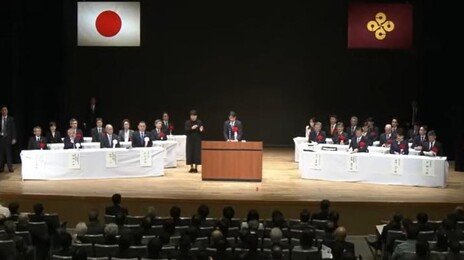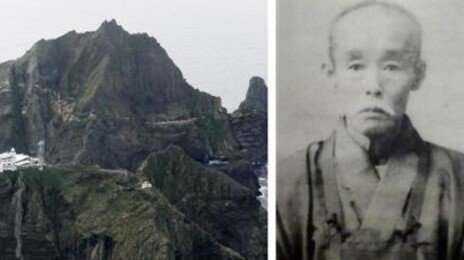공유하기
[세계의 눈]동북아와 워싱턴 ‘2005 기상도’ 원문
-
입력 2004년 5월 13일 14시 32분
글자크기 설정
By
Kent E. Calder
Director, The Korea Initiative
SAIS/Johns Hopkins University
For the first time since the Korean nuclear crisis of 1993-1994, the prospects are strong for Northeast Asia to be a global focus point for US policy activism in 2005. This would certainly be true if John Kerry is elected President. It could well also be true if George W. Bush is re-elected.
2005 will be an especially important time in Washington, as it comes at the beginning of a Presidential term, whenas in Koreathe prospects for policy innovation are at their maximum. A Presidentespecially a new onehas a mandate for action, just validated by the people. He often has a new staff, eager for action, if not fully mature. And interest groups that might otherwise slow or modify policy change are on the defensive.
As in Korea, the most important innovations of an American president are typically made in his first two years or, secondarily, in the first two years of a second term. Franklin D. Roosevelt's New Deal, Harry Truman's Hiroshima A-bomb decision, and George W. Bush's decisions to invade both Afghanistan and Iraq all came during such periods. Sometimes, as with Jimmy Carter's decision to withdraw US ground forces from Korea in 1977, his first year in office, the decision can be na¤ve, or so controversial that it is ultimately reversed. But the importance of the "first-year policy window"in Washington cannot be over-exaggerated.
A second major factor is the changing complexion of US economic interests relative to Northeast Asia. Despite America's strong security stakesunchanging since the trauma of the unexpected Korean War--the US never had really powerful investment interests on the ground in Northeast China, the Russian Far East, or even Korea and Japan until the Asian financial crisis of 1997. Since then, US direct investment stakes in Korea alone have more than doubled, and they have risen sharply in Japan also.
Investment banks and private-equity firms in particularcompanies like Goldman Sachshave risen sharply in their involvement. And such firms, in the nature of their businesses, have both the incentives (IPOs and asset appreciation) and the contacts to be a powerful lobby for American policy change. These firms profit much more from economic "turn-around"situations than classical multinational manufacturers like IBM or General Electric, and could benefit greatly from transforming a depressed and divided Northeast Asia.
A final driving factor for Northeast Asian activism in Washington next year will be the global security equation. The election will have passed, and Iraq should thus not be so all-consuming as it is for the US political world right now. Yet North Korea could be still more dangerous militarily, with its nuclear arsenal steadily expanding, and its missile-delivery systems growing more advanced, with the persistent danger of CBN weapons diffusion to terrorists, however remote, lingering in the background.
So Washington, now crippled by Iraq and Presidential politics, should have both the ability and some greater incentive to focus on Northeast Asian issues in 2005. So also could Beijing and Tokyo. It is in this common configuration among the key actors that the importance of the 2005 "critical juncture" becomes clear.
Recent assessments by Washington insiders suggest that the current Chinese leadership team of Hu Jin Tao and Wen Jia Bao has not yet consolidated its rule. When General Myers, chairman of the US Joint Chiefs of Staff, visited Beijing early this year, for example, he met with neither of them, and only military figures. The current leadership has emphasized clearly the importance of Northeast China's development, and talked seriously with leaders of many multinational firms, including Japanese, about its development. But few concrete steps have been taken. By the middle of next year, matters should have decisively begun to stabilize politically, if the Chinese economy and China's relations with the broader world stay strong.
Japan should be another factor making 2005 critical for the region. Constitutional revision is gaining momentum rapidly in Japan, with solid majorities favoring substantial change. The fate of Japanese forces in Iraq could significantly affect Japan's security debate, but the trend is clearly away from pacifism. Opinion within Japan has also grown strongly hostile to North Korea due to the kidnapping issue, as evidenced by recent Diet measures to restrict North Korean shipping from Japanese waters, following on the military actions of the past four years against North Korean contraband and spy ships. A rightward wind in Japan should be an incentive for China's leadership to take steps in 2005 to diffuse the North Korean crisis, once Zhongnanhai's domestic political base is consolidated.
Japan also should have a "policy window"next year giving its government more freedom of action than usual. After the upcoming June, 2004 Upper House elections, which the ruling LDP is expected to handily win, Koizumi should not face any major political hurdles before mid-2006, the scheduled end of his term as LDP President, and Prime Minister. He will thus be looking to history, and to securing his role as a statesman. A breakthrough settlement in Northeast Asiabuilding on his original 2002 visit to Pyongyangcould be one way to do that.
In Moscow, 2005 should also be perceived as a moment of opportunity. Russia, with one third of the world's proven natural-gas reserves, concentrated in Siberia, has clear political-economic interests in Northeast Asian detente, so that energy projects can go forward. Persistent Middle East tensions could strengthen both Russian and other regional interests in energy cooperation.
The stars, as Shakespeare might say, are thus crossed. Each of the major six-party players, outside Korea, will likely have both the capacity and incentives to negotiate seriously on a solution to the nuclear crisis, and broader issues of Northeast Asian regional cooperation. And Korea is at the center. Washington's eyesand those of Beijing, Moscow, and Tokyo as wellwill be very much on Seoul and Pyongyang in 2005.
세계의 눈 >
-

골든타임의 약탈자들
구독
-

사설
구독
-

고양이 눈
구독
트렌드뉴스
-
1
다리 멀쩡한데 “택시비 아끼려” 119 불러… 응급환자는 14%뿐
-
2
연금 개시 가능해지면 ‘가능한 적은 금액’ 즉시 인출하세요
-
3
급매 나오는 강남, 현금부자 ‘줍줍’…대출 막힌 강북은 버티기
-
4
[천광암 칼럼]장동혁은 대체 왜 이럴까
-
5
뇌진탕 6세 아이 태운 차 마라톤 통제에 막혀…경찰 도움으로 병원에
-
6
‘재명이네 마을’ 정청래·이성윤 강퇴 처리…“분란행위 용납못해”
-
7
김민석 “黨, 대통령과 차별화해선 성공 불가능”
-
8
“장동혁 사퇴” “분열 행위”…‘尹 절연’ 거부에 원외당협 정면 충돌
-
9
다카이치가 10년 넘게 앓은 ‘이 병’…韓 인구의 1% 겪어
-
10
“개인회생 신청했습니다” 집주인 통보받은 세입자가 할 일
-
1
[천광암 칼럼]장동혁은 대체 왜 이럴까
-
2
韓 ‘프리덤 실드’ 축소 제안에 美 난색…DMZ 이어 한미동맹 갈등 노출
-
3
“장동혁 사퇴” “분열 행위”…‘尹 절연’ 거부에 원외당협 정면 충돌
-
4
李 “다주택자 압박하면 전월세 불안? 기적의 논리”
-
5
야상 입은 이정현, ‘계엄 연상’ 지적에 “뻥도 그정도면 병”
-
6
다리 멀쩡한데 “택시비 아끼려” 119 불러… 응급환자는 14%뿐
-
7
러시아 “韓, ‘우크라 무기 지원’ 동참하면 보복하겠다”
-
8
급매 나오는 강남, 현금부자 ‘줍줍’…대출 막힌 강북은 버티기
-
9
[사설]범보수마저 경악하게 한 張… ‘尹 절연’ 아닌 ‘당 절단’ 노리나
-
10
조승래 “8곳 단체장 ‘무능한 尹키즈’…6·3 선거서 퇴출할 것”
트렌드뉴스
-
1
다리 멀쩡한데 “택시비 아끼려” 119 불러… 응급환자는 14%뿐
-
2
연금 개시 가능해지면 ‘가능한 적은 금액’ 즉시 인출하세요
-
3
급매 나오는 강남, 현금부자 ‘줍줍’…대출 막힌 강북은 버티기
-
4
[천광암 칼럼]장동혁은 대체 왜 이럴까
-
5
뇌진탕 6세 아이 태운 차 마라톤 통제에 막혀…경찰 도움으로 병원에
-
6
‘재명이네 마을’ 정청래·이성윤 강퇴 처리…“분란행위 용납못해”
-
7
김민석 “黨, 대통령과 차별화해선 성공 불가능”
-
8
“장동혁 사퇴” “분열 행위”…‘尹 절연’ 거부에 원외당협 정면 충돌
-
9
다카이치가 10년 넘게 앓은 ‘이 병’…韓 인구의 1% 겪어
-
10
“개인회생 신청했습니다” 집주인 통보받은 세입자가 할 일
-
1
[천광암 칼럼]장동혁은 대체 왜 이럴까
-
2
韓 ‘프리덤 실드’ 축소 제안에 美 난색…DMZ 이어 한미동맹 갈등 노출
-
3
“장동혁 사퇴” “분열 행위”…‘尹 절연’ 거부에 원외당협 정면 충돌
-
4
李 “다주택자 압박하면 전월세 불안? 기적의 논리”
-
5
야상 입은 이정현, ‘계엄 연상’ 지적에 “뻥도 그정도면 병”
-
6
다리 멀쩡한데 “택시비 아끼려” 119 불러… 응급환자는 14%뿐
-
7
러시아 “韓, ‘우크라 무기 지원’ 동참하면 보복하겠다”
-
8
급매 나오는 강남, 현금부자 ‘줍줍’…대출 막힌 강북은 버티기
-
9
[사설]범보수마저 경악하게 한 張… ‘尹 절연’ 아닌 ‘당 절단’ 노리나
-
10
조승래 “8곳 단체장 ‘무능한 尹키즈’…6·3 선거서 퇴출할 것”
-
- 좋아요
- 0개
-
- 슬퍼요
- 0개
-
- 화나요
- 0개
![[세계의 눈]장 클로드 슈라키/美경제 거품이 걱정된다](https://dimg.donga.com/a/180/101/95/2/wps/NEWS/IMAGE/2004/05/26/6921333.1.jpg)



댓글 0